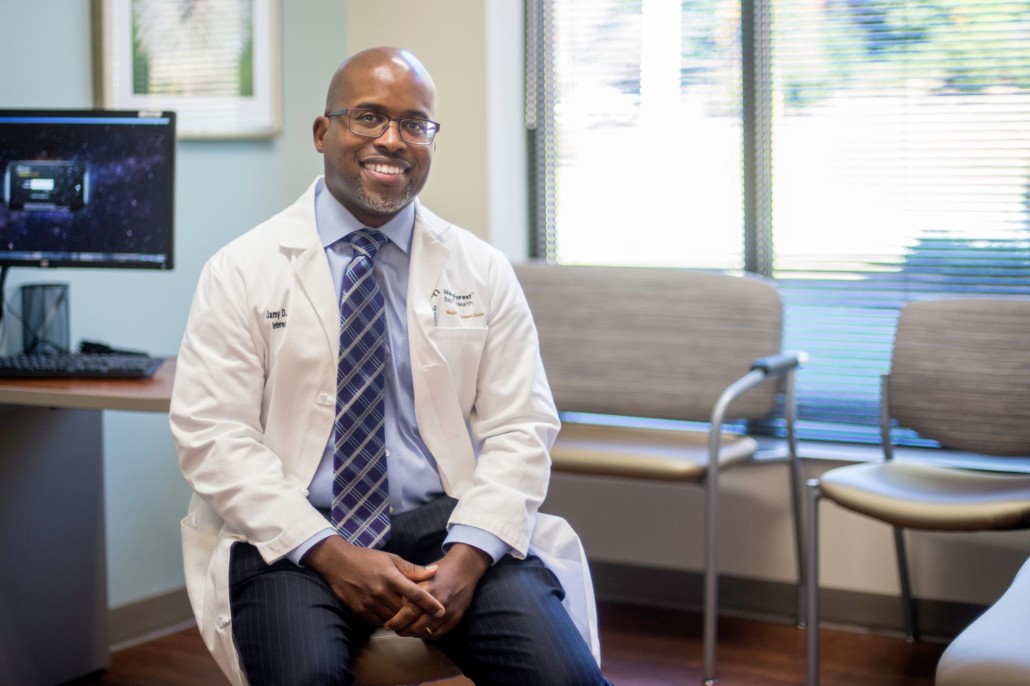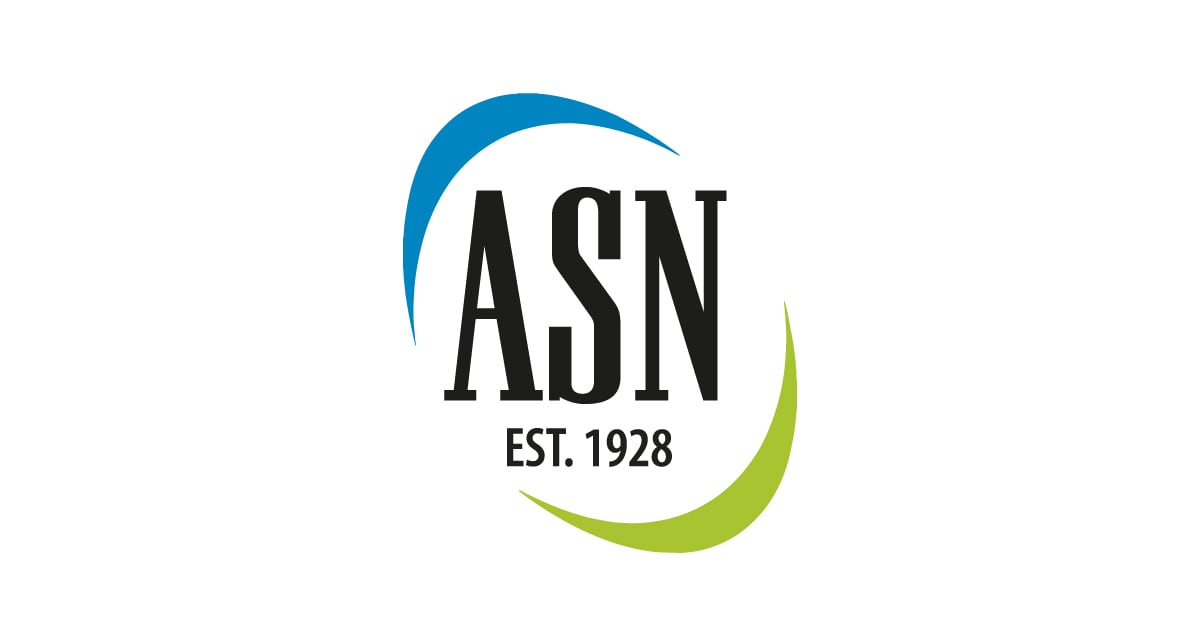Dr. Jamy Ard is co-director of the Atrium Health Wake Forest Baptist Weight Management Center where he leads the medical weight management team. He is an active ASN member and serves on the Executive Committee of the ASN Foundation Board of Trustees.
In celebration of Black History Month, the American Society for Nutrition is sharing stories from its diverse membership. Black Americans have played an important role in nutrition science and continue to make meaningful contributions to public health. The Association for the Study of African American Life and History shared that when Negro History week was first started by Carter G. Woodson, he desired to provide a theme to each year’s month to call attention to important developments in Black culture. This year’s theme is Black Health and Wellness so we are proud to present an interview series featuring ASN members who work to advance public health and wellness through nutrition.

The contributions Black Americans have made to science have not necessarily been given the same level of attention as other aspects of popular culture. Is there a Black or African-American scholar you’ve admired, who has given you inspiration in your professional career? Why is representation in STEM important, and how does it impact our future scientists?
I have always admired Dr. Shiriki Kumanyika and credit her work as having a major influence on my research and career choices. I know I am not unique in my admiration given the impact that Shiriki has had on so many aspiring scientists focused on health in African American populations. I was fortunate enough to meet her early in my medical training, and she was gracious enough to answer my questions and support my early research aspirations. I still consider her a guiding light and feel privileged to work on some committees with her like the Food and Nutrition Board. Dr. James Gavin is another such individual who I’ve had the fortune of interacting with over time, starting when he accepted an invitation to speak to our Health Careers Society at Morehouse College during my junior year. His example of excellence and leadership within the biomedical sciences is truly inspirational. I feel like I’ve won because now I get to interact as a colleague with people who were (and still are) my heroes. The impact of visible role models in science and medicine is often immeasurable; the representation of making something attainable when it might otherwise seem impossible creates a level of motivation that cannot be manufactured otherwise.
Is there a special person or mentor in your life who gave you the encouragement you needed to achieve your academic and professional success?
Dr. Laura Svetkey, who was one of my primary mentors when I was training at Duke and even now, was always so gracious to involve me in her work. Laura and the wonderful team at the Duke Hypertension Center adopted me as a medical student, allowing me to become part of the incredible research on the DASH diet and other work that has since shaped dietary policy in the US and beyond. As I think back about that time, I realize the importance of the opportunities she provided for me. She allowed me to participate in investigator meetings for these incredible multi-center trials with high-level scientists from around the country and NIH. She was always supportive and advocated for my ideas within the investigator team. That was pretty incredible! The lessons and examples that Laura shared with me have informed my work and how I try to mentor others to this day.
Can you tell us more about your current position?
I am very fortunate to serve as a co-director of the Atrium Health Wake Forest Baptist Weight Management Center based in Winston Salem, NC. I help to oversee our adult weight management programs, where I lead the medical weight management team. Our center provides comprehensive, multi-disciplinary care for adults with obesity in central North Carolina. We operate 3 clinics across the Triad providing long-term care for obesity management. We have an amazing team of health care practitioners including dietitians, behavioral health specialists, exercise physiologists, nurses and medical and surgical providers. I also have an academic appointment in the department of epidemiology and prevention in the Wake Forest School of Medicine. I primarily spend my academic time conducting clinical trials focused on improving obesity treatment outcomes, especially in populations that have historically had less success with obesity treatment. At the end of the day, I sum up my job as helping people with obesity live their best life.
What aspects of nutrition research do you foresee being most important?
I believe that understanding the role of nutrition in treating chronic disease across populations, but with enough individualization to be personalized to one’s needs, is our most immediate future. Industrialized nations have quickly transitioned from focusing on nutrition and diseases of scarcity to understanding how living with excess energy is impacting health and risk for chronic disease. Beyond this, people also want to know how to use nutrition to treat disease once it has developed.
What advice would you offer your younger self, or students and postdocs, especially those who are from underrepresented groups?
I think the best advice I can offer to someone as a trainee is to not be afraid to take a risk. I’ve learned that over my career, most things you plan for don’t work out. Most grants don’t get funded at the first review; most papers aren’t accepted on the first submission; some positions you apply for won’t accept you. However, for every instance you stick out your neck, you learn something from that experience that will help you somewhere down the road. Likewise, you should take risks when it comes to networking and meeting more experienced scientists. In my opinion, being successful in academia is about navigating the intrinsic structures and institutions that make up the academy. I think anyone with the drive and initiative to navigate academia can do so, but you need someone to show you the way. You can’t win the game if you don’t know the rules—and the rules are not always easy to discern.
What are your hopes for the future of Black scientists and what words of encouragement do you have to offer the new generation of scientists from underrepresented groups?
I hope that the numbers and representation of Blacks in science, in general, and nutrition science, more specifically, grow to a level of remarkable visibility. Many of the challenges we are facing now and will face in the future related to nutrition, especially those that are affected by social determinants of health, sustainable food systems, and health inequities, need people from diverse backgrounds and experiences to inform the type of research being done and the interpretation of that research to effect change. We also need people who can speak to policy makers about how to change systems around food and nutrition to improve conditions for disadvantaged groups. We need the next generation of scientists from underrepresented groups to join the effort in the field of nutrition, because I’m sure they can make an impact.
How can ASN as an organization and individual members support and encourage current and future Black scientists to pursue careers in the field of nutrition?
ASN as an organization has to maintain a strong commitment to achieving the goals of diversity, equity and inclusion. As members, we have to support leadership in ASN to implement strategies that lead this effort for the field of nutrition. Members also need to commit resources to the ASN campaign to fund this work. It is my sincere belief that most people who go into science do so because of innate curiosity and a strong desire to help people through discovery. Black scientists are no different, and often, that pull to help one’s own community through the research being done is very strong for African Americans. The field of nutrition is ripe with opportunity for individuals who are so motivated, and we can encourage those who want to make an impact in their communities through science to consider nutrition as a calling. However, I believe that nutrition as a career option is often not presented to aspiring Black scientists as a potential pathway. It is my hope that ASN can change that.
ASN’s Mission is to advance the science, education, and practice of nutrition with a vision of a healthier world through evidence-based nutrition. To get us there, we recognize that it will take the entire nutrition community, made up of individuals with diverse experiences, perspectives, and ideas to make our vision a reality. This diversity is the fundamental strength of our professional society.
Learn more about ASN’s diversity, equity and inclusion initiatives, and how you can provide support or get involved.




